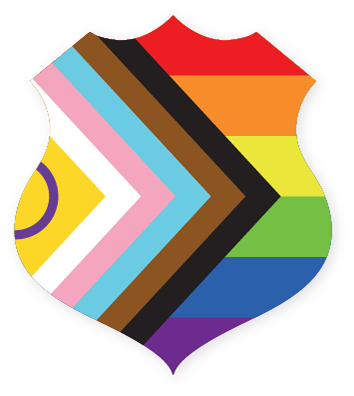Guns & Hoses was created as a private social club and support group for LGBTQIA+ officers and firefighters. | 1995 Guns & Hoses logo | Image provided by Don Mueller
The 1980s - The AIDS Epidemic
During the 1980s, the LGBTQIA+ community was devastated by the AIDS epidemic, which redirected much of the focus of the young Pride movement. Organizations such as the AIDS Coalition to Unleash Power (ACT UP), founded in 1987, protested against the federal government’s failure to address the AIDS crisis. Across the country, police departments were slow to react to the epidemic, only implementing policies and training for dealing with HIV/AIDS positive individuals many years after the crisis began. This led to ongoing tensions as police officers were often poorly informed and ill-equipped to deal with LGBTQIA+ Americans who were living with HIV/AIDS.
The 1990s - Discriminatory Practices and Settlements
In the early 1990s, police departments began to be sued due to discriminatory hiring and personnel practices against LGBTQIA+ officers. Mica England sued the Dallas Police Department in 1990 after they refused to hire her due to her sexuality; this hiring practice was overturned in 1994, and created changes across the state for local governments and police departments. In 1993, Mitchell Grobeson sued the LAPD for harassment due to his sexuality and was able to successfully return to the department five years after he had been forced to resign. These early pioneers, who risked their careers to bring lawsuits against their employers, began paving the way for other LGBTQIA+ officers to come out to their departments without fear of recrimination. But discriminatory practices remained legal in most states for many years, and officers who were out at work faced many challenges.
1998 issue of The Advocate, an LGBTQIA+ magazine
Members of the Los Angeles County Sheriff's Office marched in a pride parade in uniform for the first time in 1993 |
Image provided by Don Mueller
